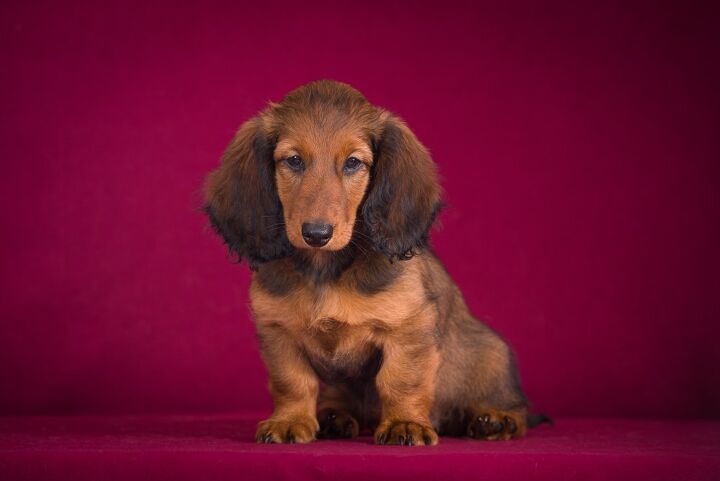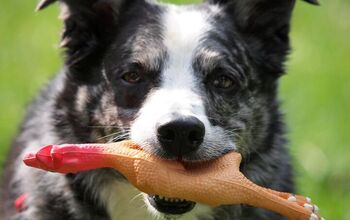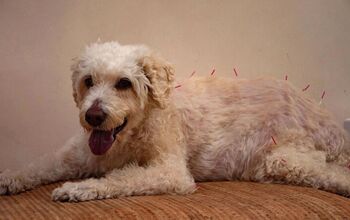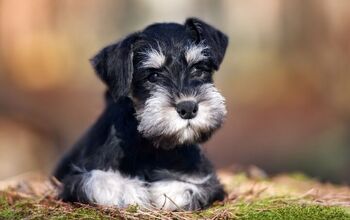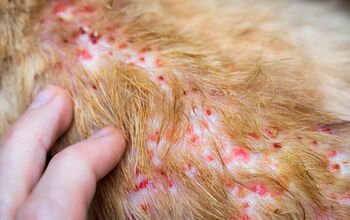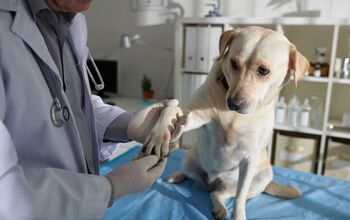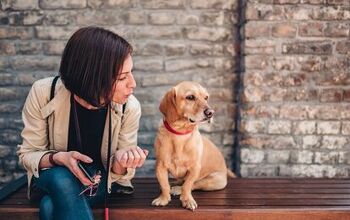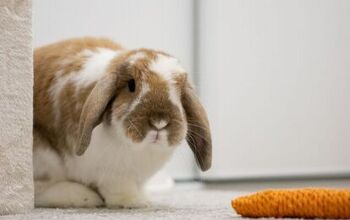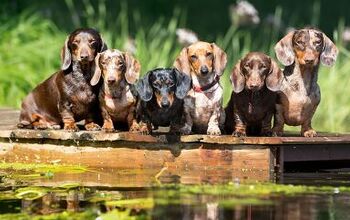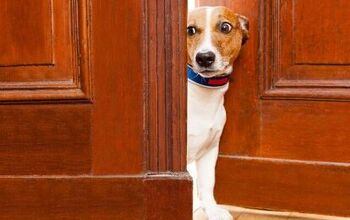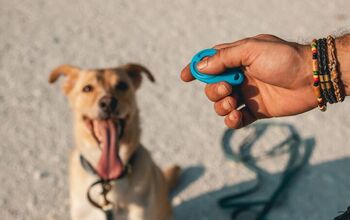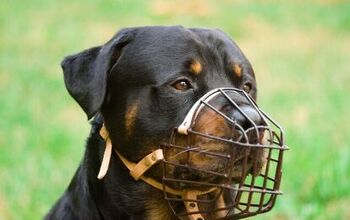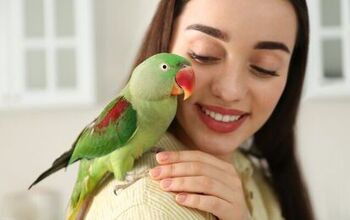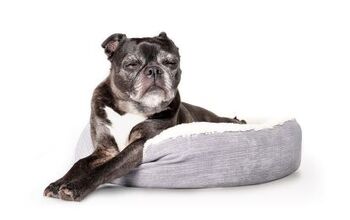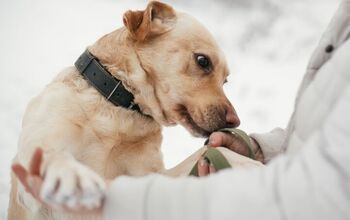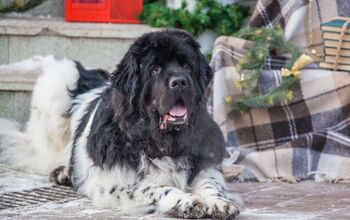Docker


About Docker
Underneath the elegant and graceful physique, the Docker hides a playful character. These medium sized designer dogs are a fairly recent addition to the world of hybrids, but they are quickly gaining popularity. And to no one surprise, as the parents of the lovely Docker are both very popular pets. This breed was developed by crossing a Dachshund with a Cocker Spaniel and boasts fantastic traits from each of the parents.
Thanks to the unique combination of the parental breeds, the Docker has a personality that makes it ideal for the role of a companion. Sweet, cuddly, and fiercely devoted to their owners, these mixed breed dogs will excel as pets for seniors, singles, or families. As long as they go through proper socialization and training, these hybrids are sweet and friendly, and will easily fit in families of all shapes and sizes.
Of course, it’s not always that the first generation mixes inherit only the best traits from two different breeds, so there are some potential behavioral issues and health problems you should consider before acquiring a Docker puppy for yourself. Read on to find out if the Docker is the right designer dog breed for you!
Sweet, cuddly, and fiercely loyal to their owners, Docker makes a great pet for seniors, singles, or families with older children.
When the Labradoodle first became popular in the 1980s, it opened a door for mixed breed dogs. The perfected litter of Lab and Poodle mix puppies showed the world that crossing breeds has its merits and that the end result can be a new breed with improved traits. Naturally, the success and popularity of the Labradoodle inspired many breeders to start working on designer dogs of their own creation, and many mixes became even more in demand than their purebred mom or dad. Unfortunately, the sudden rise in popularity of hybrids also meant that not many of the breeds had a well-documented origin. The Docker, or the Spaniel Doxie, is one of those hybrids with a mysterious past. In fact, the only information anyone has about the history of the Dachshund-Spaniel mix is derived from the general history of designer dogs: it’s likely that they were created in the United States, sometime in the last twenty years.
However, even though the Docker is a recent breed without much history to speak of, its parents have been popular for centuries. While both started out as hunting companions- Doxie in the 1600s and the Cocker Spaniel in the 1800s- these dogs were eventually bred for companionship. Now, these breeds are known for their exceptional qualities as pets, and their offspring shouldn’t be that different. Some minuscule traces of their past as hunters might still remain, but the Docker will surely be more suited for napping on a couch than for traipsing through woods in search for game.
As a mixed breed dog, the Docker is not recognized by the American Kennel Club or its international counterparts. Since this means that breeders can’t register their litters, you won’t be able to get official pedigree papers with your Docker puppy. However, certain smaller clubs do offer certifications for designer dogs, and some reputable breeders will offer that as proof of a good lineage.
Of course, just because in official terms, Docker has no pedigree to speak of, it doesn’t mean that they don’t have an impressive family tree. The Dachshund dad and the Cocker Spaniel mom will both have a well-documented ancestry and their qualities will speak for their mixed breed offspring.
Most new dog owners feel overwhelmed when it’s time to choose a perfect diet for their pet. There are literally thousands of kibble brands, then there’s your wet food- and not to mention the various alternative diets such as raw food or cooking homemade meals. What type of food is a pet parent supposed to choose for their four-legged baby?
The Docker thrives on high-quality dry food for dogs. Kibble offers complete nutrition for canines packed in a convenient form, and most pets love to eat it. Just make sure to choose dry food that’s suitable for your pet’s size (medium), age (puppy, adult, senior) and their activity level (moderate). By picking out kibble tailored to their unique traits, you make sure their dietary needs are met.
As a dog with a compact build, the Docker is prone to obesity. A lot of people unknowingly overfeed their pets, which, paired with insufficient activity, leads to rapid weight gain. Any extra fluff on a smaller frame puts a lot of stress on the dog’s body and can lead to joint issues and serious conditions such as diabetes. To make sure your Docker stays fit, don’t free feed them and stick to the recommended serving size.
As a relatively small dog with a big appetite, this hybrid is prone to obesity.
As an intelligent, eager to please dog, the Docker is highly trainable. These hybrids are fast learners and love to make their owners happy, so basic training is usually a breeze with them. Sometimes, though, these crossbreeds can inherit a stubborn streak from their Doxie parent, so you’ll have to have more patience with them. In any case, aversive and harsh training methods won’t work with this hybrid. He will either cower in fear or budge even more- and not to mention that harshness will ruin your relationship with your pet. Instead, rely on excited praise and yummy treats to motivate them to learn. Positive reinforcement methods work wonders with all dogs as they give them an extra reason to put in the effort and deepen their bond with the owner.
As an alert, loyal dog, the Docker can be a bit yappy. They’ll notify you of every potential “threat” they notice, and while it makes them a good watchdog, it can be irritating- especially for your neighbors. Teach your pet to respond to commands such as “stop” or “quiet” to put a lid on their barking when needed. Additionally, make sure you socialize them on time- it will ensure they become a friendly dog that gets along with children and other pets.
On average, a fully mature Docker weighs between 20 and 25 pounds.
The Docker has a sweet personality that makes them popular among pet owners. Their affectionate, cuddly behavior and devotion to owners make them perfect companions. With them by your side, you’ll truly realize why canine has been dubbed man’s best friend! It doesn’t matter if you’re watching TV or going on a hike, the Docker will want to be around you.
Unfortunately, their closeness to owners often leads to separation anxiety– these hybrids are not happy to be on their own in the home. That’s why the breed is best fit for seniors, families or singles who work for home. In these settings, Docker will always be close to his beloved human!
If they were socialized properly, their friendliness extends to strangers and other dogs. Children, if respectful and gentle towards them, will also see how loving and fun a Docker can be. Despite their sweet nature, though, some of their hunter genes survive in the form of high prey drive. This means, more often than not, that Docker will love to chase around animals smaller than him. If you have a cat, hamster, or a pet rabbit, take this into consideration.
One of the main reasons why breeders started to cross purebreds is the belief it will lead to ‘hybrid vigor’. This phenomenon has been noticed in hybrids or crossbreed offspring, and it signifies improved health and resiliency. Of course, the matter of genetics is much more complex than that and the jury is still out on whether designer dogs are healthier than their parents. The situation with the Docker is the same. While some of the puppies turn out to be healthier than their Doxie dad or Cocker Spaniel mom, some inherit risk for diseases from both.
If the puppy favors the Dachshund parent more, it will be prone to intervertebral disk disease, diabetes, epilepsy, and urinary tract issues. On the other hand, if the Cocker Spaniel is the more dominant one in the mix, the Docker will be susceptible to allergies, hypothyroidism, hip dysplasia, autoimmune hemolytic anemia, and eye problems.
Additionally, you should make sure that their lifestyle is healthy and suitable for dogs of their size. They are at a greater risk for obesity and tooth decay, so make sure that their diet and habits work as a preventative.
In most cases, the Docker has a life expectancy of 12 to 15 years.
The Docker is a feisty, energetic pooch with an active mind. Naturally, this means they will need daily activity to stay happy and healthy. Walks, visits to the dog park or a game of fetch in a fenced backyard will be the ideal daily exercise for this breed. These dogs require approximately 30 to 60 minutes of deliberate exercise. Of course, just because they’re not lazy couch potatoes, it doesn’t mean they’re demanding in terms of their activity needs. Unlike large breed dogs, Dockers don’t need much to tire themselves out and will be a good fit for active seniors or apartment dwellers.
Sometimes, owners neglect to meet their pet’s needs for exercise and mental activity, which leads to boredom and frustration. In turn, this leads to destructive behavioral issues such as chewing or digging. To prevent this, make sure to satisfy your dog’s playful nature, need for exercise and intellectual stimulation. Offer puzzle toys to keep them entertained, spend time with them- a good deal of it outdoors, and you’ll have a happy Docker by your side.
The Docker is an intelligent, eager to please dog, and as such- highly trainable.
The AKC doesn’t recognize designer dogs as “real” breeds, but there are many smaller clubs and organizations that do. Those of them that recognize the Docker as a breed are Dog Registry of America and International Designer Canine Registry.
The Cocker Spaniel sports a beautiful silky coat that made it famous, but the Dachshund comes in 3 different hair types: short, long, and wiry. This leads to a greater variety inside the Docker breed, as a lot about their appearance will depend on the coat type of the Doxie parent. In most cases, though, the version of the Dachshund with short, smooth hair is chosen to develop this hybrid, so there is a certain degree of standard in the breed- as much as it is possible to have that with a designer dog.
Most Docker dogs will have a medium length coat that shed moderately and is soft and silky to the touch. To keep it tangle-free and velvety, you’ll have to groom them regularly. Usually, they’re not high maintenance when it comes to coat upkeep unless the Cocker Spaniel genes are more prevalent. If the puppy looks more like Lady than the Tramp, count on a lot of grooming to keep them looking that way.
Once your Docker puppy joins the family, start with training and socialization. These tiny bundles of cuteness might charm you into cuddling and playing all day long, but teaching them the basic manners is for their own good. Once they learn where to go potty and how to walk on a leash, they’re ready to move on to learning commands and socialization. With this routine, your adorable puppy will grow up to be a friendly, obedient dog with a wonderful personality!
Photo credit: Evgeniia Shikhaleeva/Shutterstock

A proud mama to seven dogs and ten cats, Angela spends her days writing for her fellow pet parents and pampering her furballs, all of whom are rescues. When she's not gushing over her adorable cats or playing with her dogs, she can be found curled up with a good fantasy book.
More by Angela Vuckovic



